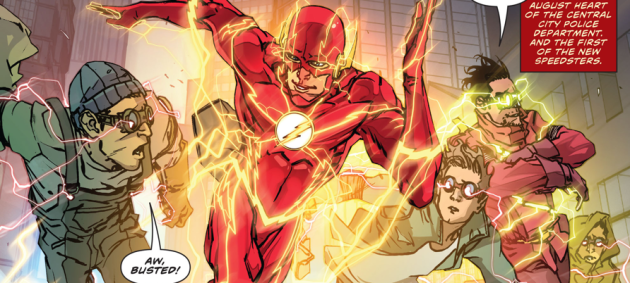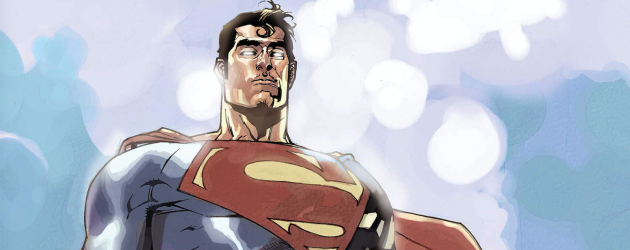Earlier this afternoon, Scott Malone, wrote an interesting article for Reuters on the emergence of the ‘Religious Left’ since the election of Donald Trump. In the article, Malone notes that, “Since President Donald Trump’s election, monthly lectures on social justice at the 600-seat Gothic chapel of New York’s Union Theological Seminary have been filled to capacity with crowds three times what they usually draw.” According to Malone, there has been an increase in social activism among liberal religious institutions to promote progressive policies, allowing the ‘religious left’ to slowly gain traction as a force in U.S. politics. Malone writes that many of the new ‘religious left’ draw inspiration from Pope Francis who has been outspoken in his criticism of strict immigration policies and unfettered capitalism. He notes that there has been a surge in congregations offering to provide sanctuary for “immigrants seeking asylum” (I’m assuming that’s PC for illegal immigrants), churches calling for the GOP to not repeal the Affordable Care act, and calling for congress to preserve spending on foreign aid.
Religious institutions have seen a boom in advocacy and awareness for issues concerning social justice, mass incarceration, immigration, and health care since Trump’s election. In addition to that, financial support has also increased. Malone writes that, “Donations to the Christian activist group Sojourners have picked up by 30 percent [since Trump’s election].” For these reasons, Malone sees the religious left as an emerging force on the political landscape in America.
While I agree that the religious left definitely has become more vocal and active in light of Trump’s election, I remain highly sceptical that it could ever reach the kind of status that Malone and many others see it attaining in the future. Certainly I doubt it could ever match the religious right in its influence on American politics. The reason for that is simple, American is becoming less and less and religious by the minute. The religious right emerged at a time when religion in general had a large influence over American morale. Now things have changed.
In 2012, the LA Times reported that for the first time, protestants lost their majority in the U.S. According to the Pew Forum on Religion & Public Life, protestants then made up just 48% of Americans, compared to two-thirds of Americans in the 70s and 80s, the same time frame in which the religious right came to prominence. The reality is, religion is losing its grasp over American society and becoming less relevant in arenas such as politics. That is not to say it holds no influence currently, but that influence is waning, and quickly. Given the attitudes toward religion and religious institutions held by millennials, the ‘religious left’ is simply too little too late to expect to have the same kind of political influence the religious right had in its heyday.
According to Pew data, “U.S. adults finds that the percentages who say they believe in God, pray daily and regularly go to church or other religious services all have declined modestly in recent years.” Research published by Jean M. Twenge, a professor of psychology at SDSU found that millennials are the “least religious generation of the last six decades” and quite possibly in US history. Based on her research, millennials simply are far less interested in religion and spirituality. And it’s not just religion but also religious institutions and organisations that they aren’t interested in.
“Unlike previous studies, ours is able to show that Millennials’ lower religious involvement is due to cultural change, not to Millennials being young and unsettled. […] More of today’s adolescents are abandoning religion before they reach adulthood, with an increasing number not raised with religion at all.”
––Jean M. Twenge
This I can attest to myself being a student at public university. By and large it’s not even so much that my generation tends to be less religious but want little of anything to do with spirituality as well. They by and large are not interested in listening to churches or religious leaders and view them as perpetuating the problems they are claiming they want to remedy. Millennials, while they are strongly supportive of religious tolerance particularly when it comes to Islam and perceived “Islamaphobia” are just not interested in religious organisations and what they have to say.
With that I think it’s simply unrealistic for the emerging ‘religious left’ to expect to accomplish much in the long run. As millennials get older and take over the work force and the political sphere, religion will further decline, relegating religious political movements to the back of the room with little to nothing to offer. Trump’s victory in the Republican primaries already started to hack away at the religious right (who heavily backed candidates such as Ted Cruz) and their influence over the GOP. In the end they ended up conforming to Trump rather than him conforming to them. Not only will the religious right decline in relevance, but the religious left, if it becomes relevant at all, it won’t be for long. Religious organisations and institutions need to adapt to a new emerging generation that just isn’t interested. Thus I reject Malone’s insinuation that the religious left can ever truly become a force in American politics.
In short: ‘stop trying to make the ‘religious left’ happen, it’s not going to happen.’
–M


 Today I got into an argument with someone over whether or not taking money in exchange for sex is “dangerous” or “wrong.” I initially responded to a post I saw which advanced the notion that prostitution is morally wrong and somehow inherently dangerous.
Today I got into an argument with someone over whether or not taking money in exchange for sex is “dangerous” or “wrong.” I initially responded to a post I saw which advanced the notion that prostitution is morally wrong and somehow inherently dangerous. 


